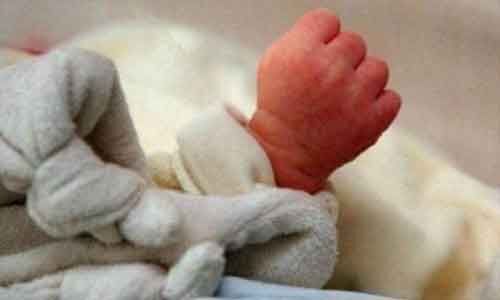- Home
- Medical news & Guidelines
- Anesthesiology
- Cardiology and CTVS
- Critical Care
- Dentistry
- Dermatology
- Diabetes and Endocrinology
- ENT
- Gastroenterology
- Medicine
- Nephrology
- Neurology
- Obstretics-Gynaecology
- Oncology
- Ophthalmology
- Orthopaedics
- Pediatrics-Neonatology
- Psychiatry
- Pulmonology
- Radiology
- Surgery
- Urology
- Laboratory Medicine
- Diet
- Nursing
- Paramedical
- Physiotherapy
- Health news
- Fact Check
- Bone Health Fact Check
- Brain Health Fact Check
- Cancer Related Fact Check
- Child Care Fact Check
- Dental and oral health fact check
- Diabetes and metabolic health fact check
- Diet and Nutrition Fact Check
- Eye and ENT Care Fact Check
- Fitness fact check
- Gut health fact check
- Heart health fact check
- Kidney health fact check
- Medical education fact check
- Men's health fact check
- Respiratory fact check
- Skin and hair care fact check
- Vaccine and Immunization fact check
- Women's health fact check
- AYUSH
- State News
- Andaman and Nicobar Islands
- Andhra Pradesh
- Arunachal Pradesh
- Assam
- Bihar
- Chandigarh
- Chattisgarh
- Dadra and Nagar Haveli
- Daman and Diu
- Delhi
- Goa
- Gujarat
- Haryana
- Himachal Pradesh
- Jammu & Kashmir
- Jharkhand
- Karnataka
- Kerala
- Ladakh
- Lakshadweep
- Madhya Pradesh
- Maharashtra
- Manipur
- Meghalaya
- Mizoram
- Nagaland
- Odisha
- Puducherry
- Punjab
- Rajasthan
- Sikkim
- Tamil Nadu
- Telangana
- Tripura
- Uttar Pradesh
- Uttrakhand
- West Bengal
- Medical Education
- Industry
Diverse vaginal microbiome during pregnancy linked to premature birth

Researchers have found that there was a greater vaginal microbial diversity in women who delivered prematurely.These findings also highlight specific bacteria associated with premature birth and could help identify the women most at risk of giving birth prematurely.
The new study has been published in Frontiers in Microbiology.
"We show a link between higher vaginal microbial diversity and premature birth, especially in the first trimester of pregnancy," says Marina Sirota, an Assistant Professor at the Bakar Computational Health Sciences Institute at the University of California San Francisco, USA. "In addition to confirming several bacterial species known to be associated with premature birth, we have identified several new ones."
She continues, "Our results shed light on the involvement of the vaginal microbiome and specific bacteria in this process. The findings could aid future diagnostic and therapeutic strategies to help prevent or delay premature birth."
Babies born early, before 37 weeks of gestation, often suffer complicated medical problems - preterm birth is the leading cause of death in newborns. While there are many risk factors, such as maternal stress, maternal age and low maternal body-mass index, exactly how and why it happens is less understood.
"For most of these births, we don't know why the women end up going into labor early and unfortunately, the limited number of therapies are often not effective," explains Sirota. "New ways of identifying women at higher risk is sorely needed."
The role of the vaginal microbiome in relation to premature birth has been investigated before, but these studies have had their limitations.
Dr Idit Kosti, a postdoctoral researcher at the Sirota lab and the first author of this study, explains, "Previous investigations have only examined a small number of women and are often biased towards certain ethnic groups, which makes it hard to apply their findings widely."
"We performed a meta-analysis, which is when you combine data from different studies into one dataset. This gave us a greater amount of information across a more diverse range of women, in terms of ethnicity and stage of pregnancy, than in each study alone."
By merging five different sets of data, equating to more than three thousand samples from over four hundred women, the scientists were able to identify new associations between the vaginal microbiome, specific bacteria and premature birth.
"We found that women who deliver prematurely have a significantly more diverse vaginal microbiome, especially in their first trimester, than those who deliver at full term." reports Kosti.
The researchers also identified specific microbes associated with premature birth. Some have been highlighted by previous studies, such as Lactobacillus, which is more prevalent in women who have a full-term birth, whereas others like Olsenella and Clostridium sensu scricto were newly linked to an early delivery.
Sirota and her team of researchers hope the findings from their research can be used to discover new ways of detecting mothers who are at risk.
"The methods that we have developed can be used to combine even more data together and these results can inform ways of diagnosing those at risk, as well as potential therapies for premature birth.
For more details click on the link: http://dx.doi.org/10.3389/fmicb.2020.00476
Hina Zahid Joined Medical Dialogue in 2017 with a passion to work as a Reporter. She coordinates with various national and international journals and association and covers all the stories related to Medical guidelines, Medical Journals, rare medical surgeries as well as all the updates in the medical field. Email: editorial@medicaldialogues.in. Contact no. 011-43720751
Dr Kamal Kant Kohli-MBBS, DTCD- a chest specialist with more than 30 years of practice and a flair for writing clinical articles, Dr Kamal Kant Kohli joined Medical Dialogues as a Chief Editor of Medical News. Besides writing articles, as an editor, he proofreads and verifies all the medical content published on Medical Dialogues including those coming from journals, studies,medical conferences,guidelines etc. Email: drkohli@medicaldialogues.in. Contact no. 011-43720751


